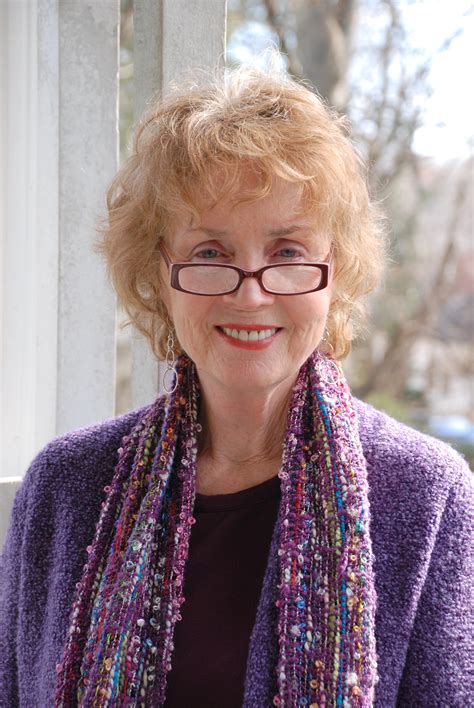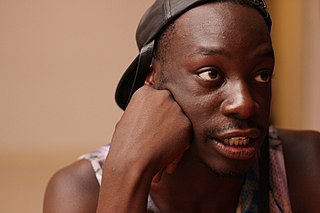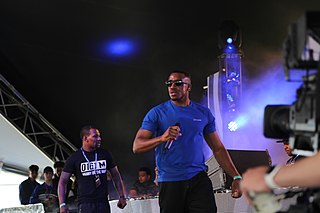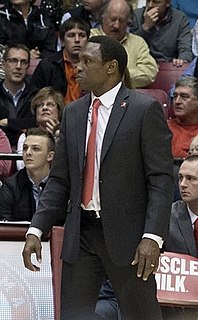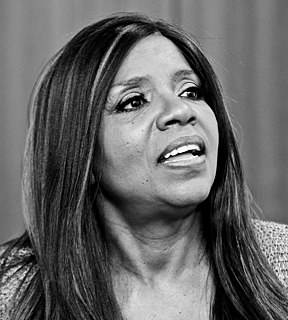A Quote by John Edgar Wideman
My aunt Geraldine was the unofficial historian and storyteller. She had all the information about family members and the gossip that came out of the church because we were very much part of the African Methodist Episcopal Zion Church. At family gatherings, the older folk had the floor, had pride of place, and it was their stories I remember.
Related Quotes
In my mother's church, everybody read the Bible and it was mostly about music. My mother had the most beautiful voice I have ever heard in my life. She could sing anything - classical, jazz, blues, opera. And people came from long distances to that little church she went to - African Methodist Episcopal, the AME church she belonged to - just hear her.
I was raised in a little church, the Grundy Methodist Church, that was very straight-laced, but I had a friend whose mother spoke in tongues. I was just wild for this family. My own parents were older, and they were so over-protective. I just loved the 'letting go' that would happen when I went to church with my friend.
It was an all-white church. It was starting to decline. They had to hire a new pastor, and they hired him. But he came under the condition that "I want and I'm called to make this a multiethnic church." So they knew. He's interesting because he's part-Asian, part-white. He's married to a Hispanic woman, so that's their family and that's their vision.
I'm the only person in my family who can't sing. My grandmother was an opera singer and all of her kids were in church five days a week - or between church and vocal lessons at Carnegie Hall. But my mom had her first studio experience recording on my album. She's used to having to fill the room, so she had to adjust to the microphone and not sing opera.
A lot of my family weren't present when I was young, so I was getting a lot of stories told to me about them. Certain members of family had reputations because they were involved in crime and stuff like that. Then, when I was out on the streets, I'd be hearing more stories about them. So I think my whole upbringing was just heavily story-oriented.
My family was very engaged in the world around us. My father was an African Methodist Episcopal minister and an immigrant from Panama. He was deeply involved in civil rights causes, which scared my mother - she was also an immigrant, from Barbados, who had her hands full with six kids, and she worried that my father would get deported. But because of his passion for politics and civil rights, we paid close attention to current events. We would watch political conventions together - for fun!
Growing up in New Orleans, my mom and dad were churchgoers. I would go to church with them. Also, I was going to a Catholic school so I had a fascination with the Catholic Church mainly because, in my mind, (their services) didn't take as long. I was bouncing in between my mom's Baptist church, which was called Second Zion Baptist, and going to a Catholic Church.
The shooter's choice of Emanuel AME was most likely deliberate, given the church's storied history. It was the first African Methodist Episcopal church in the South, founded in 1818 by a group of men including Morris Brown, a prominent pastor, and Denmark Vesey, who would go on to lead a large, yet failed, slave revolt in Charleston.
Ours was a very progressive Protestant family, but my parents were God-loving rather than God-fearing. We went to church, and I still go with my mum and dad when I return home - it's a family thing. I played flute in my dad's marching band, but I had an integrated upbringing. We had a lot of Catholic friends.
There was the strangest combination of church influence against me. Baker is a Campbellite; and therefore, as I suppose with few exceptions, got all of that Church. My wife had some relations in the Presbyterian churches, and some in the Episcopal churches; and therefore, wherever it would tell, I was set down as either one or the other, while it was everywhere contended that no Christian ought to vote for me because I belonged to no Church, and was suspected of being a Deist and had talked of fighting a duel.
When we decided to marry, we had two ceremonies - one was more bureaucratic for the sake of the Swiss authorities,then a church service in Florence, and I wrote the music for the church service. The challenge in that was that Iman's [Abdulmajid] family are Muslim and mine are Protestant. I had to be careful about the prayers that we chose and the music I wrote because I didn't want to offend either side.


